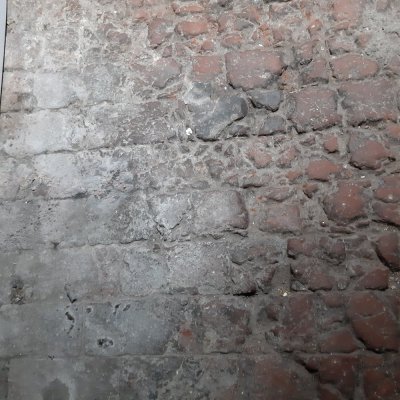ConfusedTenant
Member
- Messages
- 1
- Location
- Chichester
 Hi, I'm renting a beautiful but sadly v neglected 1850s terraced house. This is the coal cellar floor - anything stored there goes mouldy. There's a door to the cellar which I keep closed to prevent the smell permeating the rest of the house. There's an open archway to a very damp coal store which leaks when it rains. Any advice on what I can do to clean the floor and stop/reduce the smell? I have extremely limited funds and my landlord won't do anything. The washing machine, boiler and (condenser) dryer are situated in the room. Many thanks.
Hi, I'm renting a beautiful but sadly v neglected 1850s terraced house. This is the coal cellar floor - anything stored there goes mouldy. There's a door to the cellar which I keep closed to prevent the smell permeating the rest of the house. There's an open archway to a very damp coal store which leaks when it rains. Any advice on what I can do to clean the floor and stop/reduce the smell? I have extremely limited funds and my landlord won't do anything. The washing machine, boiler and (condenser) dryer are situated in the room. Many thanks.